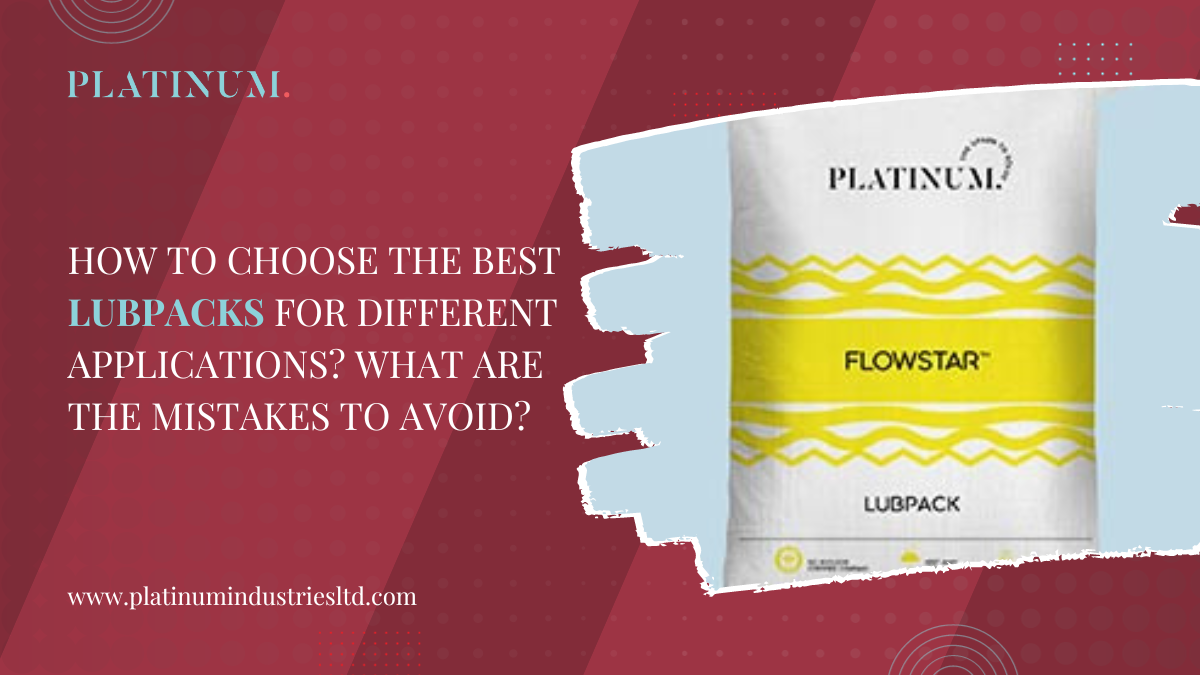Selecting the right lubricant packs, or “lub packs,” for PVC applications is critical to ensure the quality, efficiency, and performance of both rigid and soft PVC products. Here’s a guide on how to choose the best lub packs for different PVC stabilizer applications, along with common mistakes to avoid:
Factors to Consider When Choosing Lubpacks for PVC Applications:
1. Type of PVC and Processing Method:
Consider whether you’re working with rigid or flexible PVC applications and the specific processing method involved, such as extrusion, injection moulding, or calendaring. Lubricants for PVC may differ due to their unique processing requirements.
2. Functionality of Lubricants:
Different lubpacks offer specific functionalities in one-pack PVC stabilizer processing, such as external lubrication, internal lubrication, or release agents. Determine the lubrication requirements for your PVC application, considering factors like flowability, demolding, surface finish, and heat stability.
3. Physical Properties:
Evaluate the impact of lubricants on the physical properties of PVC products, such as impact resistance, flexibility, tensile strength, and thermal stability. Choose lubpacks from lubpacks manufacturers that enhance these properties without compromising the overall quality of the PVC superpacks.
4. Additive Interactions:
Consider the interactions between lubricants and other additives used in PVC formulations, such as plasticizers, stabilizers, or fillers. Lubricants should complement and not hinder the functionality of other additives.
For instance, lubpacks by Platinum Industries, the best lubpacks manufacturer in India come in different varieties that provide varying levels of adherence to each of these parameters, proving to be the best for your business needs.
Mistakes to Avoid When Choosing Lubpacks for PVC Applications:
1. Ignoring Application-Specific Requirements:
This can lead to choosing lubpacks that do not cater to the unique processing needs of rigid or flexible PVC.
2. Not Testing Compatibility and Performance:
Neglecting compatibility tests or trials with different lubpacks can result in unexpected outcomes during PVC processing, leading to production inefficiencies or product defects.
3. Overlooking Regulatory Compliance:
Failing to ensure that lubpacks meet regulatory standards and compliance can pose risks in terms of product safety, environmental impact, and adherence to industry regulations.
Avoiding common mistakes in lubricant selection is crucial to optimize PVC stabilizer processing, ensuring high-quality end products with the desired properties and performance characteristics. To know more about how our lubpacks can help you do this, head to our website www.platinumindustriesltd.com.

